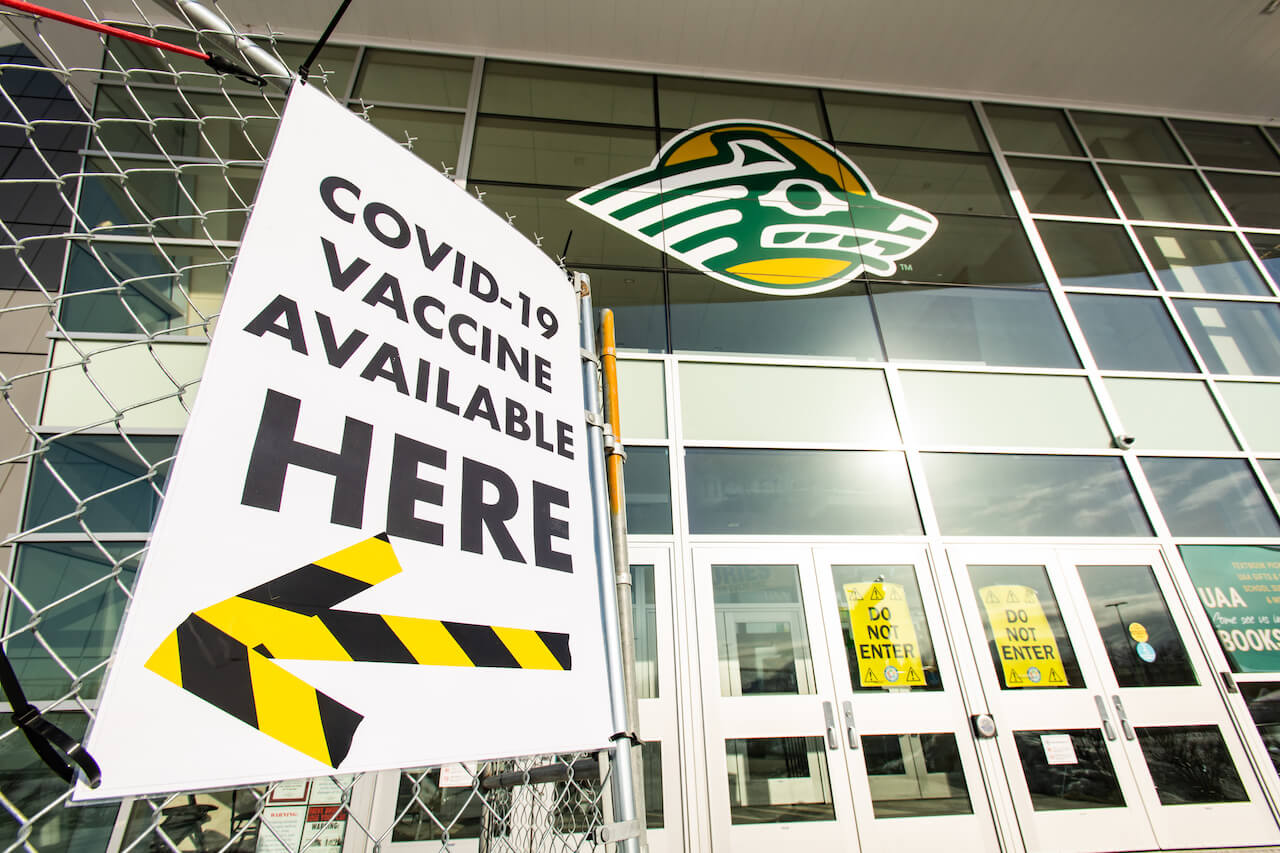UAA’s Center for Human Development releases results of COVID-19 accessibility survey
by Vicki Nechodomu and Catalina Myers |

Recently, the UAA Center for Human Development (CHD) released the results of a survey conducted in August focusing on individuals 18 and older with disabilities in Alaska and their access to the COVID-19 vaccine, including barriers, motivators and trusted sources of information.
Previously, little information was available regarding the intersection of disabilities and COVID-19 in Alaska. Several national studies have found that individuals with disabilities have positive attitudes toward the COVID-19 vaccine as well as high COVID-19 diagnosis and mortality rates. The report from CHD provides insight into barriers preventing individuals with disabilities from obtaining the vaccine and can be used to inform vaccine distribution and education efforts across Alaska.
The three-week survey reviewed responses from individuals who identified either as an individual with a disability; a disability service provider; or a caregiver, guardian or family member of an individual with a disability.
Results of the COVID-19 vaccine accessibility survey indicate:
- Vaccinated individuals with disabilities reported they were concerned that the vaccine would worsen their medical conditions, it could contain side effects, and that they couldn’t obtain the vaccine on their own.
- They said their top motivators to getting vaccinated were protecting the health of themselves, their family and friends and their community.
- Individuals with disabilities indicated that their primary health care providers, the CDC and the tribal health system are their most trusted sources for information.
- Care providers and families of individuals with disabilities cited guardian bias or hesitation, lack of transportation and inability to go on one’s own as top COVID-19 vaccine barriers that people with disabilities experience.
- Care providers and family perceived that family and friends, primary health care providers and elders to be the most trusted sources of information.
“Individuals with disabilities have experienced many negative impacts from the COVID-19 pandemic,” said Sondra LeClair, health projects coordinator for CHD. “It is important that the COVID-19 vaccine is easily accessible to them, as it has given people hope of living healthy and connected lives again. We hope that vaccine providers can use this information to help them break down potential barriers to COVID-19 vaccine access and create messaging that addresses the concerns and needs of Alaskans with disabilities.”
The survey was created in partnership with the Disability Law Center of Alaska, Statewide Independent Living Council of Alaska, the State of Alaska and Governor’s Council on Disabilities and Special Education, and the Department of Health and Social Services.
The full report, COVID-19 Vaccines: Barriers, Motivators, and Trusted Sources of Information for Individuals with Disabilities in the State of Alaska, is available online.
This story originally appeared in the UAA Green and Gold News.

CATEGORIES
TAGS
- Awards
- Behavioral Health
- Climate Change
- Community
- COVID-19
- Forensic Care
- Giving
- Simulation
- Workforce Development
ACADEMIC UNITS
- Department of Human Services
- Division of Population Health Sciences
- Justice Center
- School of Allied Health
- School of Nursing
- School of Preventive & Therapeutic Sciences
- School of Social Work
PARTNER PROGRAMS
CENTERS & INSTITUTES
- Alaska Center for Rural Health and Health Workforce
- Center for Human Development
- Child Welfare Academy
- Interprofessional Health Sciences Simulation Center
MEDIA INQUIRIES / STORY LEADS









